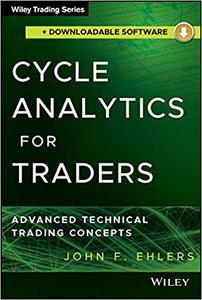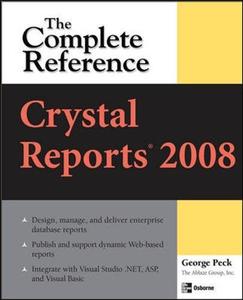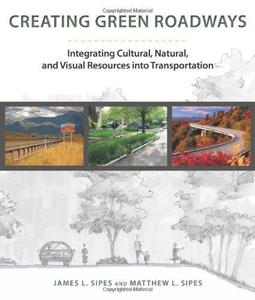
 |
 Cycle Analytics for Traders, + Downloadable Software: Advanced Technical Trading Concepts by John F. Ehlers Language: English | 2013 | ISBN: 1118728513 | 256 pages | MOBI | 2,5 MB A technical resource for self-directed traders who want to understand the scientific underpinnings of the filters and indicators used in trading decisions  Cybill Disobedience by Cybill Shepherd, Aimee Lee Ball Language: English | 2001 | ISBN: 0091879035 | 320 pages | EPUB | 0,3 MB If you only ever buy one Hollywood autobiography make it this one. Sassy, shocking, funny and totally revealing this is Cybill Shepherd's unexpurgated life-story, told with the wit and honesty you'd expect from the star that's seen it all and knows it all. She has been 57 kinds of disobedient and she has never held back from doing or saying what she wants. Cybill Disobedience is a limit-breaking, open-top car ride down Hollywood's Hall of Fame. From top model to movie siren, sex with Elvis to Bruce Willis's appeal, The Last Picture Show to Taxi Driver, the Cybill disaster and the Moonlighting phenomenon, it's all in here; every boyfriend, every affair, every good film and bad film. But most of all it's about a strong woman's determination to survive. The whole shebang - from Hollywood's mouthiest queen.  Customer's New Voice: Extreme Relevancy and Experience through Volunteered Customer Information by John S. McKean Language: English | 2014 | ISBN: 111900232X | 352 pages | PDF | 16,3 MB Find out how to reap the benefits of motivating and engaging the new, direct customer voice  Cult Magazines: A to Z: A Compendium of Culturally Obsessive & Curiously Expressive Publications by Earl Kemp Language: English | 2009 | ISBN: 1933065141 | 240 pages | PDF | 14,55 MB Exploring the subcultures of mid-20th-century America, this encyclopedia comprehensively documents the huge quantity of cult magazines that thrived beneath the mainstream.  Crystal Reports 2008: The Complete Reference by George Peck Language: English | 2008 | ISBN: 0071590986 | 968 pages | PDF | 32,8 MB Your One-Stop Guide to Enterprise Reporting with Crystal Reports 2008  Crystal Reports 2008 For Dummies by Allen G. Taylor Language: English | 2008 | ISBN: 0470290773 | 408 pages | PDF + EPUB | (10,1 + 32,4) MB A report is only useful if those who receive it understand what it means. Knowing how to use Crystal Reports gives you the edge in producing reports from your database that really are crystal clear.  Creating a Sustainable Organization: Approaches for Enhancing Corporate Value Through Sustainability by Peter A. Soyka Language: English | 2012 | ISBN: 0132874407 | 432 pages | PDF | 2,14 MB Organizations that prioritize environmental, health, and safety (EHS) issues are well placed to attract better customers, better talent, and today's growing number of socially responsible investors. But, to gain these benefits, companies must choose the right sustainability strategies, and then manage and measure them well. Now, leading business sustainability consultant Peter Soyka offers a complete and actionable guide to driving greater value through sustainability. In Creating a Sustainable Organization , Soyka bridges the disparate worlds of the EHS/sustainability professional and the investor/analyst. Readers will learn what the evidence says about linkages between sustainability and value... how to manage key stakeholder relationships influencing corporate response to EHS and social equity issues... how to effectively manage sustainability throughout the business... how to evaluate sustainability posture and performance from the standpoint of external investors and internal management... how to maximize the influence of organizational actors focused on sustainability, and much more. This book will be invaluable for all environmental, health, and safety decision-makers and professionals concerned with improving sustainability and value; for executives and strategists seeking long-term competitive advantage; for stock analysts evaluating potential investments; and for researchers and MBA candidates currently studying the techniques and potential of corporate sustainability.  Creating Green Roadways: Integrating Cultural, Natural, and Visual Resources into Transportation by James L. Sipes, Matthew L. Sipes Language: English | 2013 | ISBN: 1610913752, 1610913582 | 278 pages | PDF | 83,7 MB In 'Creating Green Roads', James and Matthew Sipes demonstrate that roads don't have to be the enemy of sustainability: they can be designed to minimally impact the environment while improving quality of life. The authors examine traditional, utilitarian methods of transportation planning that have resulted in a host of negative impacts: from urban sprawl and congestion to loss of community identity and excess air and water pollution. They offer a better approach - one that blends form and function. Through case studies and photos from around the country, 'Creating Green Roads' provides an examination of all aspects of green roads, from transportation policy to the basics of road design, public involvement, road ecology, and the economics of sustainable roads. This comprehensive guide offers a practical strategy for rethinking how we design, plan, and maintain our transportation infrastructure.  Create Your Own Employee Handbook: A Legal and Practical Guide by Lisa Guerin, Amy Delpo Language: English | 2005 | ISBN: 141330186X | 290 pages | PDF | 3,8 MB Providing your employees with a handbook that spells out your company's benefits, policies and procedures makes great sense, practically and legally.  Crapitalism: Liberals Who Make Millions Swiping Your Tax Dollars by Jason Mattera Language: English | 2014 | ISBN: 1476750416 | 304 pages | EPUB | 0,67 MB New York Times bestselling author and ambush journalist Jason Mattera sets his sights on his next big target: crony liberals, including Al Gore, Carlos Slim, Harry Reid, and Jay Z, whose riches come at taxpayer expense. |